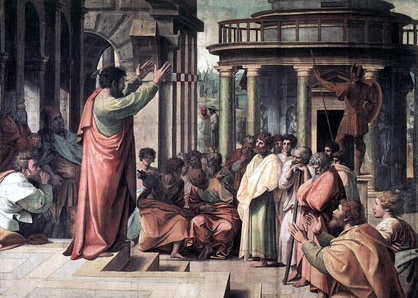Ecumenical Councils Turkey
First Council of Constantinople (381)
Although the First Council of Nicaea had condemned the Arian belief
and reasserted the dogma that the Father and the Son were of the same
substance, some theologians believed that the Holy Spirit, the third
Person of the Trinity, differed in substance from the other two Persons,
being a kind of 'creature' of the second Person. This heresy was called Macedonianism.
In May 381 a second Ecumenical Councils was summoned by Theodosius I
(37895) to meet in Constantinople in the church of St. Irene to define
the nature of the Holy Spirit. He had recognized Christianity as the
official religion of his empire a year before. The emperor had done his
homework carefully and already instructed the Churches that the object
of the council would be the reconfirmation of the Nicene Creed. This
time no representatives came from Rome.
The council reaffirmed the Nicene faith in the sense that it reasserted
the keywords 'of the same substance', or homoousios and that the Holy
Spirit was of the same substance with the Father and the Son. This
council brought an end to Arianism, which had already been split into
smaller dissensions, within the empire. It continued on among the Goths,
who were converted among many other Arian missionaries by Ulfila
(311-83), translator of the Gothic Bible, and among Vandals and Lombards.
The most important decision which concerned the Church hierarchy was
that to the vexation of Alexandria- 'the bishop of Constantinople
should have rank after the bishop of Rome because it is New Rome.' Thus
Constantinople replaced Alexandria which until then had held the second
place after Rome and also moved above Antioch and Jerusalem.
Ecumenical Councils Turkey
First Council of Nicaea
(325)
First Council of Constantinople
(381)
Council of Ephesus
(431)
Council of Chalcedon
(451)
Second Council of Constantinople
(553)
Third Council of Constantinople
(680-1)
Second Council of Nicaea
(787)


